 Elders can be victims of abuse, neglect, and exploitation in their own homes, in the care of relatives, and in the facilities where they are supposed to be receiving care. This maltreatment can take forms such as someone preying on another person financially, a caregiver not attending to the victim’s medical or daily are needs, or someone being physically assaultive towards a vulnerable individual. Knowing how to detect the signs of elder abuse will help you protect your loved one and ensure that they are receiving proper care.
Elders can be victims of abuse, neglect, and exploitation in their own homes, in the care of relatives, and in the facilities where they are supposed to be receiving care. This maltreatment can take forms such as someone preying on another person financially, a caregiver not attending to the victim’s medical or daily are needs, or someone being physically assaultive towards a vulnerable individual. Knowing how to detect the signs of elder abuse will help you protect your loved one and ensure that they are receiving proper care.
What is Elder Abuse and Neglect?
Generally, elder abuse refers to conduct including physical, emotional, or sexual acts which are inflicted upon a person of advanced age. Neglect occurs when a person who is responsible for an elderly individual does not provide them with adequate medical care or attendance to their personal needs. Financial exploitation occurs when an individual takes financial advantage of a vulnerable adult.
Where to Look for Elder Abuse and Neglect?
The first place to watch for abusive or neglectful actions against an elder is where they are living. As individuals age, they become more physically frail. This fragility can make it more difficult for them to attend to their own needs and care. Additionally, those experiencing a decline in their mental or physical health may also require assistance because of thinking and memory issues. The changes to their health can result in their being confined to their home or having to reside in assisted living environments where they are more isolated and dependent on others to meet their needs. These conditions create opportunities for unscrupulous individuals to perpetrate abuse, neglect, and exploitation of the individuals.
Who Are the Abusers?
Elder abuse is ordinarily committed by those who have regular contact with the individual. The abusers can be family members such as adult children or grandchildren, or a spouse. In-home and private pay caregivers can also be responsible for these acts against a victim in their home. Additionally, this type of abuse and neglect can also occur at the hands of staff members in institutional environments such as a nursing home or other long-term care facility.
What Should I Watch Out for?
Being in regular contact with your loved one will help you determine if there have been any significant changes to their physical condition or environment. Look for changes to their physical appearance such as extreme weight loss, wearing soiled clothing, not appearing to have good hygiene or unexplained bruising. All of these conditions could be indicative that something is wrong. Another sign that your loved one is not receiving proper care is medication mismanagement such are their not receiving the proper dosage or quantity of a necessary medicine.
More serious signs of physical abuse may include broken bones, joint dislocations, or sprains. While accidents may happen which causes these injuries, it is critical that you investigate the circumstances which precipitated them to determine if abuse was a factor.
When looking for financial exploitation, you may notice unexplained and unusual charges on a debit or credit card or withdrawals from your loved one’s banking account. A marked change to your loved one’s spending habits may be an indication that someone else is improperly using their resources. Another sign may also be that the caregiver does not want to you be alone with your loved one. This person may be intimidating the victim to keep them from telling you what is occurring.
Elder abuse, neglect, and exploitation are serious issues. If you suspect your loved one is being abused, neglected, or exploited you should take action immediately to report the matter. Please contact us online or by phone if we may be of assistance.
